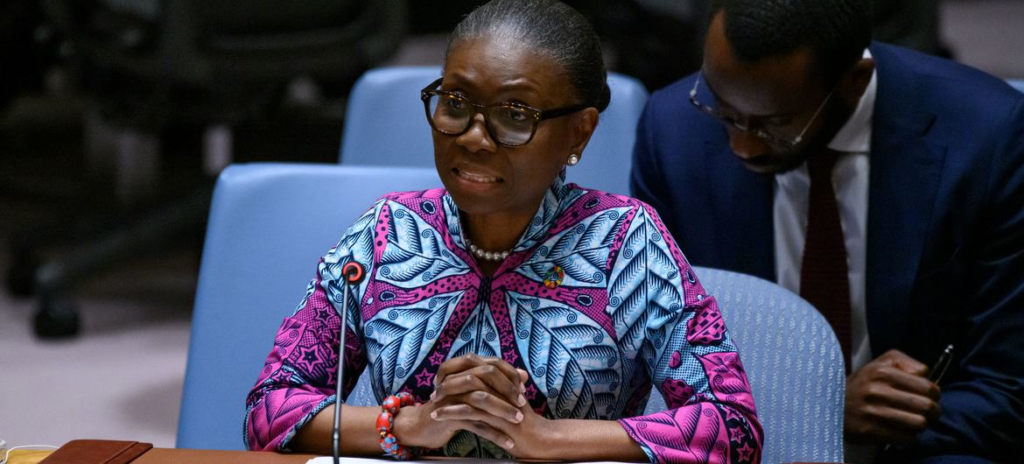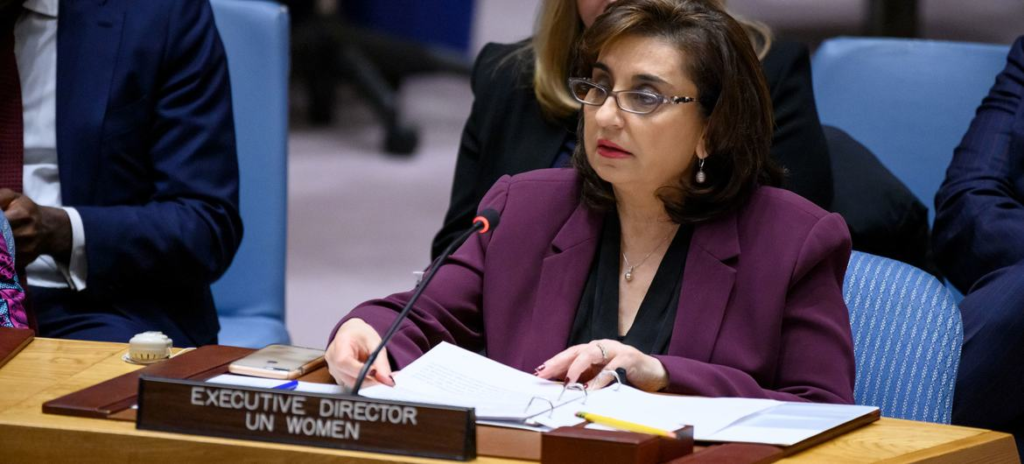
New York, USA, 23 February 2023-/African Media Agency(AMA)/Despite many challenges, Somalia has made significant progress in advancing key national priorities, but enhancing women’s political participation remains critical, UN Deputy Special Representative in the country, Anita Kiki Gbeho, told the Security Council on Wednesday.
Ms. Gbeho said she has welcomed the Federal Government’s continued commitment to implementing the women, peace, and security agenda, as demonstrated by the launch of a new national action plan on Security Council resolution 1325
The landmark document, adopted more than 20 years ago, reaffirms women’s role in peacebuilding and conflict prevention and resolution.
Action on equality
Describing the action plan as “timely”, she said it provides a framework to address the challenges that persist for women in Somalia but stressed that more action is needed for equal representation in all facets of public life.
“To this end, enhancing women’s political participation also remains critical,” she said.
“This includes that the commitment Somalia’s political leaders made on the 30 per cent women’s quota is not only codified in relevant legal and electoral frameworks but also safeguarded by all entities.”
Ms. Gbeho underlined the UN’s continued support to newly elected women representatives. “Moving forward, we must remain focused on advancing women’s participation and equality,” she said, calling on stakeholders to redouble their efforts.
Al-Shabaab threat persists
Meanwhile, the militant group Al-Shabaab continues to pose a serious threat to peace and security in Somalia.
Last year saw a 60 per cent increase in civilian casualties compared to 2021, making it the deadliest year for civilians since 2017, she reported.
Ms. Gbeho said the Federal Government has made progress in recent months by targeting the group’s military and financial operations, as well as its “ideological narrative”.
The Somalia Security Forces, reinforced by local militias, have conducted successful operations against Al-Shabaab in two states and are expected to gradually move into other areas.
“Consolidating gains in the newly recovered areas will require strong linkages between military operations and stabilization initiatives, comprised of reconciliation and justice components and aimed at bolstering good governance and service delivery,” she said.
Famine fears
Addressing the historic drought in the Horn of Africa, the UN official reported that 8.3 million Somalis – nearly half the population – require assistance and protection.
“While famine has been prevented for now, famine remains a threat if the April to June rains underperform as forecast and humanitarian assistance is not sustained,” she warned.
Humanitarians are seeking $2.6 billion to cover priority needs for 7.6 million people, she said, urging donors to step up their support.

Women, peace and security
The Executive Director of UN Women, Sima Bahous, who also briefed the Council, said the ongoing drought is exacerbating gender-based violence.
She recalled that ambassadors have raised the importance of the 30 per cent quota and a new law on sexual violence.
Ms. Bahous noted that women´s political participation and leadership is a pre-requisite for more inclusive societies, finding solutions towards a lasting peace, and achieving sustainable development.
“And yet, the quota in Somalia was not met, women’s representation fell, sexual violence has increased, and the Sexual Offences Bill adopted unanimously by the Council of Ministers five years ago has still not been passed by parliament,” she said.
Furthermore, there has been “an alarming increase” in sexual violence rates since 2020, which doubled over the previous year.
“And they have continued to rise, as the worst drought in many decades is having a devastating impact on all Somalis, and women and girls are disproportionately impacted,” she added.
Ms. Bahous emphasized that women’s meaningful participation goes beyond elections, saying “it is only when women are included in all areas of public life, that we will have a chance at peace and at ensuring that we support the rebuilding of a society that is resilient to future shocks.”
Distributed by African Media Agency (AMA) on behalf of UN NEWS.
The post Somalia: UN official underlines need to advance women’s participation in public life appeared first on African Media Agency.






